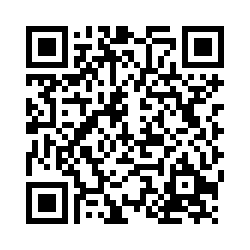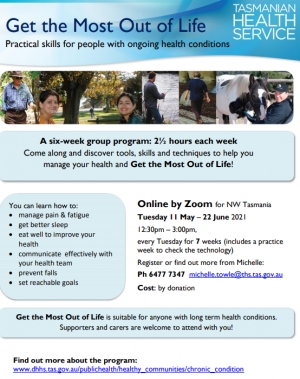
Thinking and memory tests – CANTAB
I’m Edward Hill, a Post-doctoral Research Fellow at the Wicking Dementia Research and Education Centre and an associate investigator on the ISLAND Project. I’m really interested in how our lifestyle choices impact the way we think, our ‘cognition’. Does doing a university degree in later-life improve our ability to think and act? Will further education reduce our risk of dementia? These are the questions I am particularly interested in investigating in the ISLAND Project.
The term ‘cognition’ refers to the thinking and memory aspects of our consciousness and is a core focus of dementia research. In the ISLAND Project we are tracking long-term changes in cognition such as memory, spatial awareness and thinking speed. Technological advancements in recent years have enabled cognitive tests to be conducted remotely, using the internet. The internet provides an ideal platform to measure cognition, as technology is everywhere in modern day society, enabling rapid, scalable testing of large populations in urban and remote areas. We will soon email ISLAND participants with an invitation to complete a few cognitive tests using the CANTAB (Cambridge Neuropsychological Test Automated Battery) program. These tests will be accessed via the internet from your ISLAND Home Portal, and you will be able to do the tests from the comfort of your own home. Please keep an eye on your emails for further details. CANTAB will only be available to participants who have signed up to our research program and completed their baseline surveys so please log into your ISLAND Home page and complete your baseline surveys if you would like to take part.
We ask participants to complete a range of cognitive tests in the ISLAND Project and the data they provide is invaluable to us – so thank you to all of you who choose to take part. All these tests will improve our understanding of brain functions, provide insight into underlying causes of disease, ways to detect symptoms earlier and how to best evaluate interventions to improve brain health. All of this will help us to improve ways to detect, diagnose and treat dementia for future generations of Tasmanians – some of our core aims in the ISLAND Project. |

Protect your brain from stress
We all experience stress throughout our lives. Stress can be good – it challenges us to adapt and can motivate us to succeed. Too much stress, for too long, can be a problem. It can put us at risk of health complications, like issues with our digestion, blood pressure and mental health (for example, increasing our anxiety or causing depression). Stress has also been proposed as a potential risk factor for dementia. Some studies have shown that people who report stress consistently throughout their mid-life, may be at greater risk of developing dementia later in their life. Similarly, people who experience acutely traumatic experiences, such as natural disasters, also appear at greater risk of dementia. However, the mechanism through which stress affects dementia risk isn’t fully understood. When your brain detects a stressful situation, it stimulates release of a hormone called cortisol. Cortisol helps your brain and body adapt to the stressful situation. This is helpful for your recovery, but if cortisol is produced in excess and/or for too long this can be harmful. Cortisol appears to be important in dementia, particularly Alzheimer’s disease. People living with Alzheimer’s disease reportedly have higher levels of cortisol than people not living with Alzheimer’s disease. In addition, Alzheimer’s disease appears to progress more rapidly in people who have higher levels of cortisol. Experiments in laboratories has suggested that cortisol may contribute to some other events occurring in the brain in Alzheimer’s disease, such as the formation of amyloid plaques. Work underway at the Wicking Dementia Research and Education Centre is exploring mechanisms by which cortisol impacts the brain in Alzheimer’s disease, in the hope of identifying new approaches for counteracting the effects of stress therapeutically.
Researchers also think that stress may have an indirect relationship to dementia risk. For example, it is well established that stress can increase your blood pressure. It is also established that increased blood pressure may put you at risk of cardiovascular disease. Both high blood pressure and cardiovascular disease are risk factors themselves for developing dementia. So you can see that reducing your stress may help reduce your risk of cardiovascular disease, it may help reduce your blood pressure, which in turn may help reduce your risk of dementia. A similar relationship exists between stress, major depression and dementia. Here in Tasmania, an exciting new opportunity to contribute to research on stress, brain health and dementia is on the horizon. It is called the ISLAND Resilience Initiative. This new sub-study of the ISLAND Project will investigate how stress impacts our health. It will particularly focus on bushfires and will provide practical assistance with managing stress, increasing bushfire preparedness and building resilience. The ISLAND Resilience initiative will only be available to participants who have signed up to our research program and completed their baseline surveys so please log into your ISLAND Home page and complete your baseline surveys if you would like to take part. More information about the ISLAND Resilience Initiative will be available shortly. Stress cannot be completely avoided, but managing our stress can be very beneficial to our overall physical and mental health. Here are some ways to manage stress and hopefully prevent some of the damaging effects it could have on your health and brain. - Focus on what you can control in a situation, not what you can’t.
- Make sure you get a good night sleep. Lack of restful sleep makes it harder to handle higher order mental activities such as processing information and reasoning.
- Manage your workload. Make a list so you can see what you need to accomplish and to help reduce any feeling of being overloaded.
- Ask for help – reach out to a family member, friend or colleague for help to manage a problem or task.
- Strive for a healthy response to stress – a certain amount of stress is inevitable in life and can be helpful. Don’t try to eliminate stress but try to look for a healthy response to stressful situations.
|

Invitation to participate in research - emotional intelligence and stress
Are you aged 50 and over and currently studying at an Australian university? If the answer is yes, you are invited to participate in an online research project, conducted through Monash University. The research is investigating the relationship between stress and emotional intelligence in older university students and involves answering some questions in a survey. If you would like to participate, or find out more, please click here or use the QR code above.
|

The Tasmanian Health Service is offering a six-week online group management program starting 11th May (12:30-3:00pm) for anyone in the North-West with ongoing health conditions. Get the Most out of Life online chronic disease self-management program is offered via Zoom (using a computer or tablet with a camera and microphone) and each session runs for approximately two and a half hours. The first week will be dedicated to practicing with the technology and then 6 sessions building your knowledge, skills and techniques in areas such as nutrition, decision-making, use of medications, appropriate exercise for maintaining and improving strength, flexibility and endurance, dealing with frustrations, pain and isolation and how to evaluate new treatments. Register or find out more from Michelle: michelle.towle@ths.tas.gov.au
|